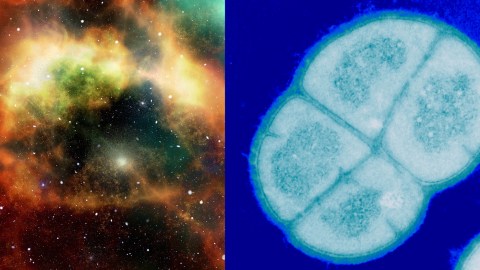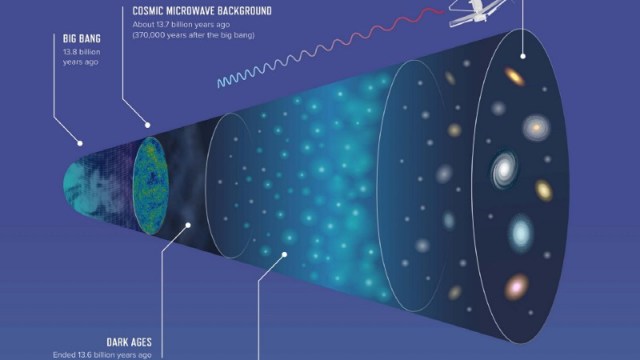Did life on Earth start in space? Study finds evidence of panspermia

Credit: Pixabay / Dr. Michael Daly.
A new study from Japanese researchers confirms the possibility of panspermia, the possible spread of life throughout the universe via microbes that attach themselves to space bodies. The scientists showed that bacteria on the outside of the International Space Station can survive in space for years. The team also concluded that the Deinococcus radiodurans bacteria used in the experiment could even make the journey from Earth to Mars, hinting at the likelihood of our own extraterrestrial beginnings.
To understand how bacteria can withstand the harshness of space, scientists sent Deinococcal cell clumps to the International Space Station. Once there, the specimen, around 1mm in diameter, were attached to the outside of the station on aluminum plates. During the course of three years, bacteria samples were sent back from space to Earth for further study.
What the researchers found is that while the outer layer of the clumps was killed off by the strong UV radiation, layers on the inside survived. They were essentially protected by the dead bacteria in the outer layer. Once in a lab, they were able to fix damage to their DNA and even grow further.
The researchers estimate such bacteria could survive in space for up to 8 years.
Akihiko Yamagishi from Tokyo University of Pharmacy and Life Sciences in Japan, who was involved in the study, shared that their work proves that bacteria can not only survive in space but may also be the way life spreads throughout the universe, through panspermia.
“If bacteria can survive in space, [they] may be transferred from one planet to another,” explained Yamagishi to New Scientist. “We don’t know where life emerged. If life emerged on Earth, it may [have been] transferred to Mars. Alternatively, if life emerged on Mars, it may [have been] transferred to Earth … meaning that we are the offspring of Martian life.”
Did Life on Earth Come From Space?www.youtube.com
In its early days, Earth was constantly bombarded by meteorites, and was also hit by a Mars-sized planet called Theia, which likely resulted in the formation of our moon. This happened about 4.5 billion years ago and life started to sprout about 4 billion years ago. Is there a connection between all the collisions and our existence? Considering the slow pace of evolution, the relatively fast appearance of life after the Earth cooled off point to panspermia being a possible explanation.
Another implication of panspermia – if we started out as microbes from another planet, why wouldn’t there be more life throughout the universe, originated in a similar fashion? If you follow this logic, there’s a good chance cosmic life is abundant.
Check out the new study, carried out in conjunction with Japanese national space agency JAXA, published in “The Frontiers in Microbiology.”





